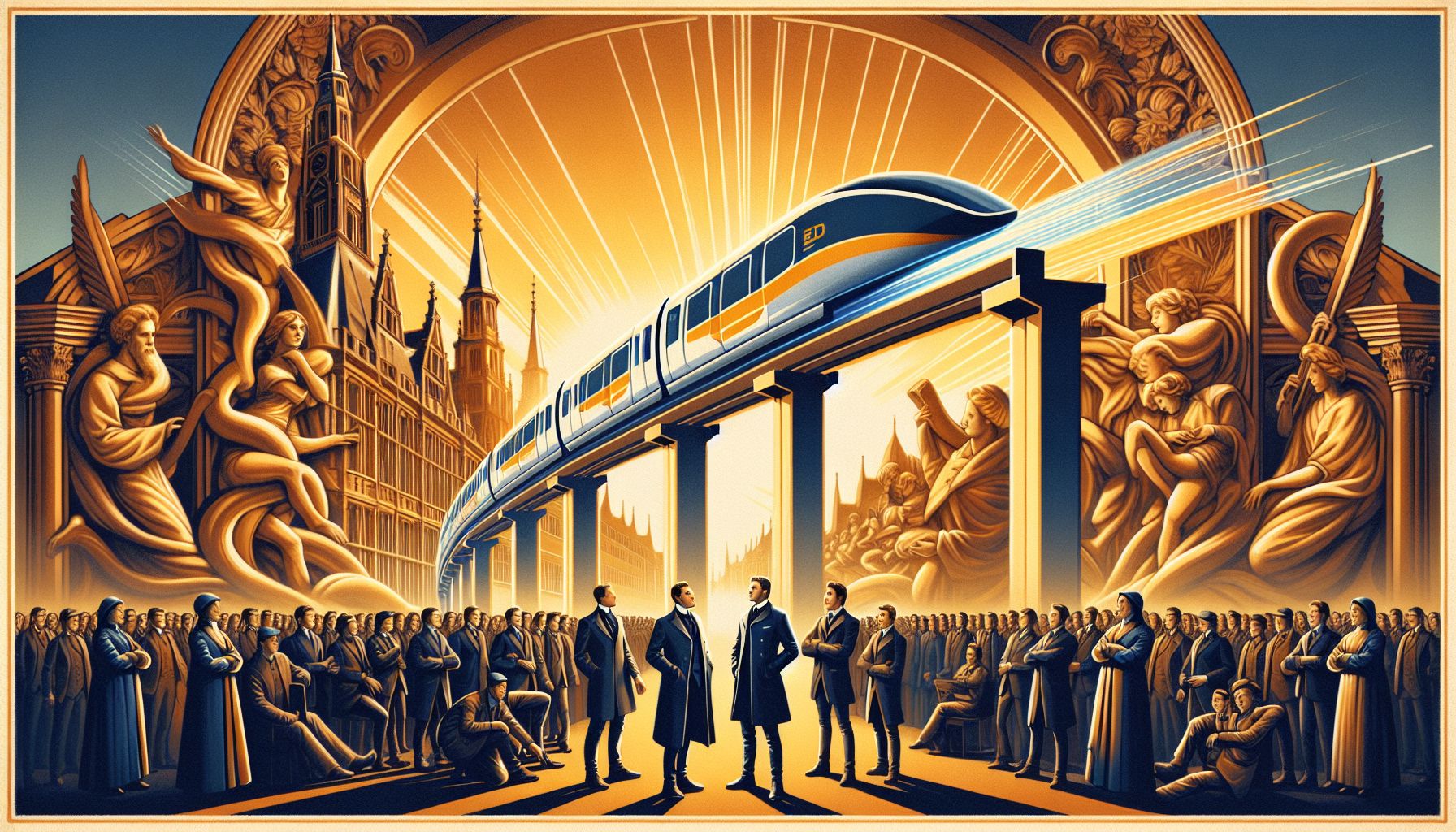TU Delft Students Achieve Hyperloop Track Switch Milestone

TU Delft students successfully completed the first hyperloop track switch, marking a significant step in high-speed transportation technology.
Groundbreaking Achievement
This groundbreaking achievement by the students from TU Delft represents a pivotal moment in the development of hyperloop technology. The team managed to switch their hyperloop prototype from one track to another, a feat that has not been demonstrated anywhere else in the world. This successful track switch was conducted on a 42-meter test track built on the TU Delft campus in the Netherlands.
Technical Details
The hyperloop system utilizes electromagnetic levitation and propulsion to move capsules through vacuum tubes, significantly reducing air resistance. This allows the ‘vacuum train’ to travel at extremely high speeds with minimal energy consumption. While the test model developed by the TU Delft students does not yet reach the targeted speeds of approximately 1000 kilometers per hour, the successful implementation of the track switch mechanism is a critical step towards achieving this goal in the future.
Potential Implications
The successful demonstration of the track switch has significant implications for the future of hyperloop technology. According to team captain Cem Celikbas, this innovation could pave the way for creating hyperloop networks with multiple branches, enhancing the versatility and practicality of the system. The ability to switch tracks while maintaining high speeds is crucial for the development of a comprehensive transportation network that can rival the speed and efficiency of air travel.
Sustainable Transportation
The hyperloop system is seen as a sustainable alternative to short-haul flights, particularly within Europe. The TU Delft team envisions that hyperloops could drastically reduce travel times between major cities, such as reducing the trip from Amsterdam to Paris to just half an hour. This not only offers a faster travel option but also a more cost-effective one, as short-haul flights continue to become more expensive due to stricter environmental regulations and emissions costs. The hyperloop system operates on electricity, which can be generated from renewable sources, further enhancing its environmental benefits.
Future Prospects
Looking ahead, the TU Delft students aim to test a full-scale hyperloop with passengers by 2030. This ambitious goal highlights the team’s commitment to pushing the boundaries of transportation technology. They believe that the successful track switch is just the beginning, and that with continued innovation and development, a fully operational hyperloop system could become a reality within the next decade.

